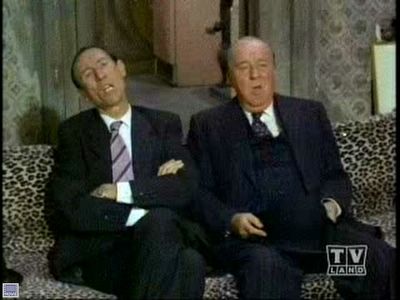
Posted by Hello
I grew up in the Baby Boom years. During that time, it was considered natural to have the students in school, from kindergarten to senior in high school, recite the Pledge of Allegiance. Sometime during high school, all students had a year-long course in Civics. Our society didn't take citizenship for granted; it was expected that you would need to formally teach the basis for our government and culture to the young.
And the schools did teach it. We studied the great documents of our nation's founding - the Declaration of Independence and the Constitution. National, state, and local government, and how they worked. Enough of law to have an appreciation of the process, without bogging down in details that were beyond our level of understanding.
We also learned about the fight to preserve our freedoms - how the military, with the active support of the civilians, fought for our liberty. We learned about socialism and communism. As an added bonus, we had some eyewitness testimony from students who themselves, or their families, had experienced other systems of government. We learned about immigration and the contributions of immigrants. For a final, ego-destroying example of the least we should know, we took a practice citizenship test. Most did OK; but it was humbling to realize how much was expected on the test, and how little prepared most people were. I remember talking at the dinner table about the questions. Other than my dad, few of our family or neighbors could answer the questions correctly.
We don't teach citizenship anymore. We're more likely to dwell on the problems of our society. It's too bad, really. We need to know about the framework that forms the basis of our society, and our part in it.
In these days of multi-culturalism, kids are exposed to propagandiziing about the wonders of other cultures. They seldom learn about their own. The assumption that, somehow, they will "pick it up" without a conscious effort is sadly in error.
The funny thing is, on the day of the state proficiency test in Citizenship a few years ago, I had some students who were in a panic about the test. I reminded them about the song from School House Rock that sang about how a bill becomes law. They walked out of class to take the test, humming the song.
When they came back the next day, they were ecstatic about how well they did on that part of the test.
I had a heated discussion (OK, a downright argument) with a professor a few years ago about what it means to be an American. My answer was (and is):
An American is anyone born in the US, or naturalized.
She wasn't satisfied with that answer - she kept asking for more. Knowing what I know about how that class turned out, I realize that she wanted me to commit to limiting citizenship to those who had similar political viewpoints or cultural heritage. Then, naturally, she would devote class time to tearing my racist thinking down.
I wouldn't have then, and don't now, limit my perspective to those who are "like me". I've known people all the way from anarchists to near fascists (from South America). I count among my friends a wide variety of backgrounds, linguistically, racially, and religiously.
But, I've come to believe that being an American is more than an accident of birth. Being an American means committing to the principles laid down in the early days of the Republic. Without that committment to principles, we wouldn't have a United States of America - we'd have a loose collection of states without unifying cohesion - we'd have the EU.
1 comment:
Anything but the EU! Is this class the one you wrote of below?
Post a Comment